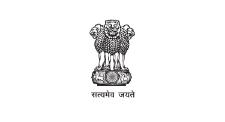Components of the Scheme:
The scheme will provide following components:
- The Hub: Establishment of Biotech-KISAN Hub in each of 15 agro-climatic zones of the country under the leadership of a champion, who will act as a Facilitator. Each Hub will create a network by developing strong linkages with top quality scientific institutions / State Agricultural Universities (SAUs) / Krishi Vigyan Kendras (KVKs) / existing state agriculture extension services / system and other Farmers’ organizations in the region as well as linkages with leading international institutions / organizations. Biotech-KISAN Hub will have a tinkering laboratory. The core activities of the Hub will include:
- Understanding the problems of the local farmer;
- Demonstration and scale-up programmes for implementing the solutions to the problems of farmers – addressing water, soil, seed and marketing issues;·Scouting for available technologies and solutions to problems of farmers in the region;
- Creation of strong Scientists-Farmers Interaction Platform and connectivity; training programmes for the farmer and immersion programmes for scientists;
- Communication set up through radio and TV and connectivity through social media;
- Individual thematic fellowship programmes for selected farmers in the zone at high-tech science laboratories;
- Special solution-driven thematic fellowships to women farmers (Mahila Kisan Biotech Fellowship) to develop them as leaders and grass root scientists. The hub and its facilitator will partner with at least 3 institutions / KVKs etc. and should enter into agreement with each of the collaborating partner / institution with defined contribution for achieving the envisaged objectives. For each partner Institute, it will be mandatory to participate with the hub and its activities and for this a separate budget would be provided for each of them.
- Partnering Institutes: The activities of the partnering institute will include:
- Conduct training programmes for farmers in laboratories of scientific research institutions
- Expose farmers to leading science laboratories to develop them as scientific leaders at grass root level;
- Provide solution and support to agriculture problems related to water, soil, seed, diseases and marketing issues in respective areas;
- The subject and scope of training programme will include good agriculture practices;
- The duration of the training will be 5 to 10 days;
- The small and marginal farmers having qualification of high school / intermediate, preferably in science subjects will be eligible for training. The actual cost of the training programme will be decided based on the number of trainees and the subject areas.
- Training programmes for scientists in agricultural farms
- The training programme or immersion of scientists in agricultural farms with a view to better understand the problems of farmers at ground level and address / implement solutions.
- The subject and scope of training programme will include study on the problems being faced by farmers in their farms related to water management, nutrient and pest / disease management, storage and marketing issues and their linkages with already available possible solutions in science laboratories, on-farm innovative ideas and research being practiced by farmers for their agriculture problems at grass root level and their validation etc.
- The duration of the training may be 10 to 15 days.
- The scientists working in scientific institutions / State Agriculture Universities (SAUs) / KVKs will be eligible for training.
- Conduct training programmes for farmers in laboratories of scientific research institutions
- Research projects: If scientists during the course of these programmes identify a problem, which would require larger funding; it would be possible for them to submit the research project proposal to the scheme for additional funding. The proposal will be considered by the relevant Expert Committee / Task Force of the scheme and based on the genesis of the project and the solution hypothesised, additional funds may be provided.
- International Training:
- Short-term Training (STT) Programmes will be developed by DBT in partnership with international organisations / universities, where Farmers will be exposed to best global farm management and practices.
- Depending on the activities carried out by scientists/farmers in India; selected groups will be sponsored by DBT for international STT. The current collaborating universities are Cambridge University, UK; Wageningen University, Netherlands and others are likely to be added.


